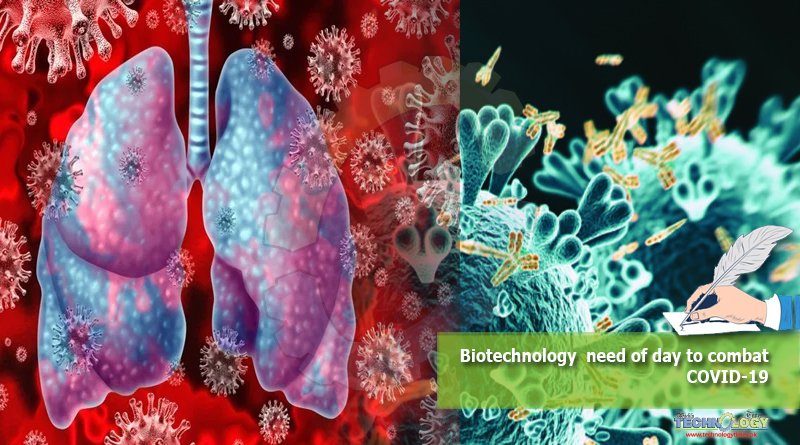Biotechnology is the boon of science. We need biotechnology at every level.We can no longer neglect the sociological, political, and economic dimensions of pandemics and other global health problems. Biotech companies are responding faster than ever to emerging health threats

Every state needs biotechnology implementation. Imagine the year is 2025 and as a society, we have a COVID-19 vaccine that is safe (e.g. less than 0.0001% for adverse incidents) and effective for all variants of the virus and its relatives, a rapid COVID-19 test that has high specificity and sensitivity and gives results within hours, and low-cost treatment for COVID-19, ensuring the survival of most everyone who gets infected.
But these will likely not be enough to stop a future pandemic. The currently-unfolding COVID-19 case boldly underscores the reality that science and technology are never enough to solve global health problems alone. Rather, we need a strategic and systematic integration of social sciences, risk sciences, and communication along with science, technology, and innovation to adequately meet the challenges of emerging global risks, such as COVID-19. Simply put, complex global issues require integrated and insightful solutions.
Combatting the COVID-19 pandemic will take advances in many fronts, and biotechnology is required for some of the most-discussed urgent needs, including the need for faster, robust diagnostic tests, new treatments, and a vaccine.
Not only will those working in biotechnology be able to contribute to the development of these solutions, but they also will help ensure we can make enough products for everyone as quickly and safely as possible.
That is why this is the perfect time for students to consider their skills. Biotechnology will not only help society in the present, but it will also help shape the future.
There are a number of ways our students and alumni can impact the world, but tackling this pandemic might be the grand challenge of their generation.
We need more and more innovation as for now no amount of biotechnology advancement can overcome the psychosocial, socioeconomic, and political barriers causing inaction and distribution inefficiencies. We also need research that takes into account these challenges.
Understanding the interaction between social distancing behaviors and vaccination under different modes of risk communication could be critical information for effective policymaking. It would be wise to invest now in robust science communication, prediction of the likely public responses to any eventual COVID-19 vaccine, and how these interact with social distancing behaviors.
Modeling research has shown that including feedback effects between individual social distancing behaviors and transmission dynamics can dramatically alter predictions as compared to the standard, ‘off the shelf’ models usually used to predict disease spread and prevalence.
The race for improved COVID-19 diagnostics beyond the currently available real-time RT-PCR test will hopefully yield tests that are faster, more accurate, and affordable. Better tests would help establish rapid testing options such as pop-up testing centers, which could be located almost anywhere, or off-the-shelf tests, which could be obtained from the nearest pharmacy at the first sign of a fever or cough.
